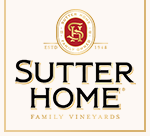FAQs Related to News
I have one of your wines – is it safe to drink?
Yes. Our products are safe. The quality of our wines has been our focus for over 60 years. As a family-owned company, Trinchero has always employed sustainability practices and stringent quality assurance testing across the company in our vineyard, winemaking, and production practices to ensure that our products are safe.*
What precautions are taken to ensure your wine is safe for consumption?
The U.S. Tax and Trade Bureau (TTB), the agency that regulates wine, beer, and spirits, monitors wines for compounds, including arsenic, as part of its testing program. In addition to the TTB testing, all of our wines and spirits are subject to comprehensive quality and food safety management systems to further ensure the safety of our products. Furthermore, all of our wines meet the established Canadian and European Union safety standards as noted in the Wine Institute fact sheet, which can be found here: https://www.wineinstitute.org/resources/pressroom/03202015
Will I be refunded/can I return my wine?
There has been no recall on Sutter Home wines. All of our wines are well below established global consumer wine safety standards and are safe to drink.*
Why is arsenic present in your wine?
As an agricultural product, wines from throughout the world contain trace amounts of arsenic as do juices, vegetables, grains, and other alcohol beverages.
What are the arsenic levels in your wine? Which of your wines have arsenic in them?
Arsenic is naturally occurring in the air, soil, and water. These natural factors, in turn, have an unpredictable effect on the levels of arsenic in many foods and beverages. All of our wines are well-below the established global consumer wine safety standards.
Do wines of different price points have different arsenic levels in them?
The level of arsenic in any wine or any other food or beverage has no correlation to any particular price point.
Do California wines contain different levels of arsenic compared to other regions?
The presence of arsenic in trace amounts is not exclusive to California wines.
What is the difference between organic and inorganic arsenic?
Both inorganic and organic arsenic can be present in agricultural products. It should be noted that the terms inorganic and organic do not indicate man-made versus naturally occurring, but rather refers to metals and other elements in which they can be found.
What is the Wine Institute and why should I trust it?
Wine Institute is the public policy advocacy association of California wineries. Wine Institute brings together the resources of 1,000 wineries and affiliated businesses to support legislative and regulatory advocacy, international market development, media relations, scientific research, and education programs that benefit the entire California wine industry. https://www.wineinstitute.org/resources/pressroom/03202015
For additional information, you may also reference the following articles from Forbes and Buzzfeed:
Arsenic And California Wine: Do You Need To Worry?
There’s Arsenic In Cheap Wine — And Pretty Much Everything Else You Eat
*Government Warning: (1) According to the Surgeon General, women should not drink alcohol beverages during pregnancy because of the risk of birth defects. (2) Consumption of alcoholic beverages impairs your ability to drive a car or operate machinery, and may cause health problems.

